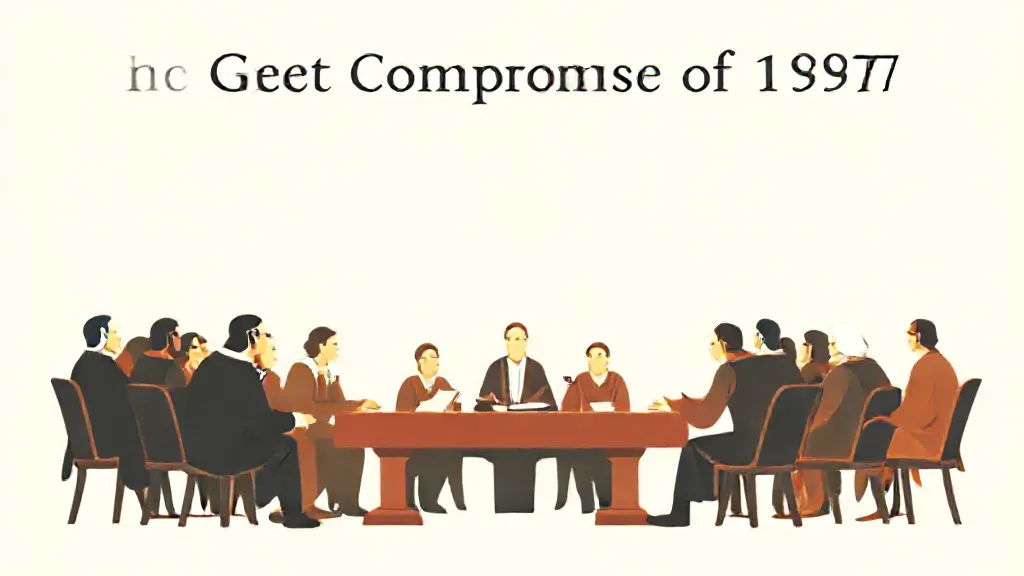The Great Compromise, also known as the Connecticut Compromise, was a pivotal agreement reached during the Constitutional Convention of 1787. This compromise was essential in shaping the legislative structure of the United States, balancing the interests of both large and small states. The impacts of the Great Compromise are far-reaching, influencing not only the formation of Congress but also the broader political landscape of the nation.
The Formation of Congress: A Dual System
The Great Compromise established a bicameral legislature, which consists of two chambers: the House of Representatives and the Senate. The House, with representation based on population, favored larger states, while the Senate, with two representatives from each state, ensured that smaller states had an equal voice. This dual system allowed for a more balanced representation in Congress, addressing the concerns of both factions and laying the groundwork for legislative processes that continue to this day.
Balancing State Interests: The Role of Compromise
The necessity of compromise was a significant impact of the Great Compromise. It demonstrated that the framers of the Constitution recognized the diversity of interests among the states. By creating a system where both populous and less populous states had a stake in the legislative process, the Great Compromise set a precedent for future negotiations and compromises in American politics.
This spirit of compromise has become a hallmark of the U.S. political system, influencing everything from budget negotiations to civil rights legislation.
Influencing Federalism: The Power Dynamics
The Great Compromise also had profound implications for the relationship between state and federal governments. By allowing states to have equal representation in the Senate, it ensured that state interests could not be easily overridden by the federal government. This balance of power has been a critical feature of American federalism, allowing states to retain significant authority while still being part of a unified national government.
Long-term Political Effects: The Rise of Political Parties
The structure established by the Great Compromise contributed to the development of political parties in the United States. As factions emerged within Congress, particularly between those favoring strong federal control and those advocating for states’ rights, political parties began to take shape. This development has had lasting effects on American political dynamics, influencing elections, governance, and policy-making.
The Great Compromise and Representation: A Lasting Legacy
The principles of representation that emerged from the Great Compromise continue to resonate in contemporary discussions about electoral fairness and political representation. Debates over issues such as gerrymandering, voter rights, and the Electoral College often hark back to the foundational principles established in 1787. The compromise set the stage for ongoing dialogues about how best to ensure that all voices are heard in the political process.
Educational Impact: Teaching the Constitution
The Great Compromise is a fundamental topic in American history education. It serves as a case study in the importance of negotiation and compromise in governance. Educators often use this historical event to illustrate the complexities of creating a government that represents diverse interests.
Understanding the Great Compromise helps students grasp the significance of the Constitution and the ongoing challenges of American democracy.
Global Influence: A Model for Other Nations
Beyond the borders of the United States, the Great Compromise has served as an influential model for other nations grappling with the challenges of representation and governance. Countries seeking to balance regional interests with national unity often look to the U.
S. system as a framework for their own legislative structures. The principles of compromise and balanced representation are now recognized as vital components of stable and effective governance worldwide.
Conclusion: The Enduring Significance of the Great Compromise
In conclusion, the impacts of the Great Compromise are profound and enduring. From shaping the structure of Congress to influencing political dynamics and educational frameworks, the compromise laid the foundation for a government that seeks to balance the interests of diverse states. It is a testament to the power of compromise in creating a functional democracy, and its lessons continue to be relevant in today’s political landscape.
